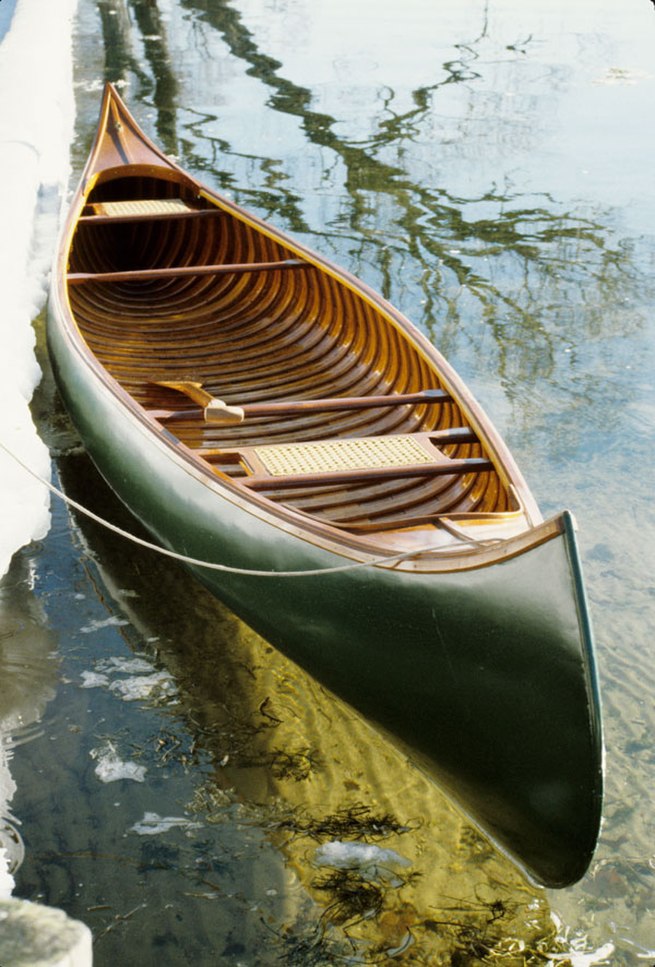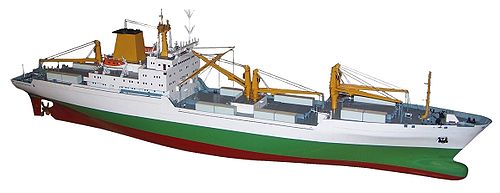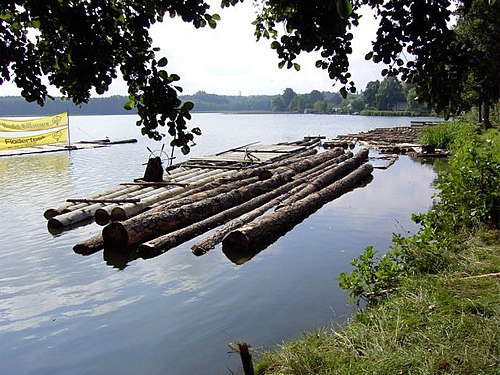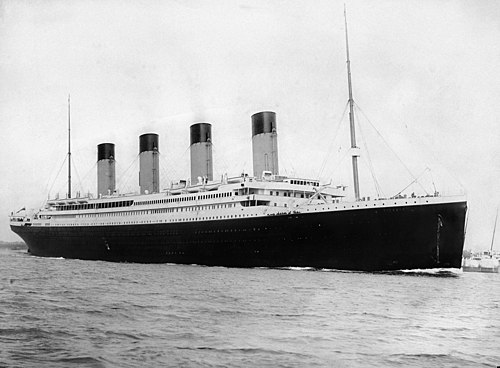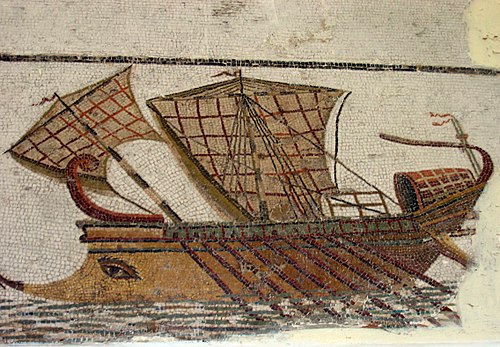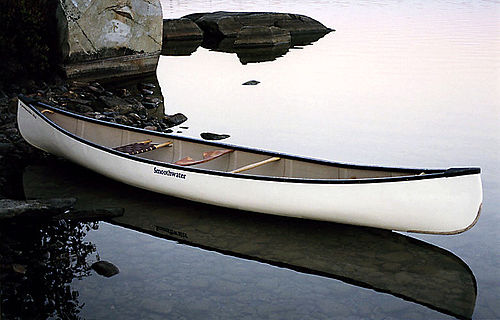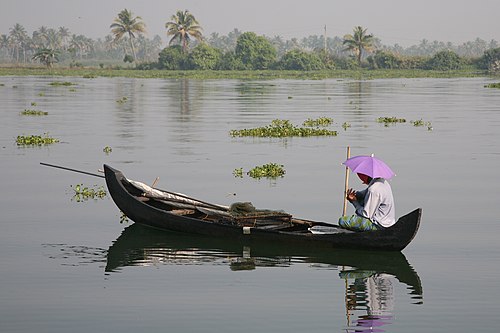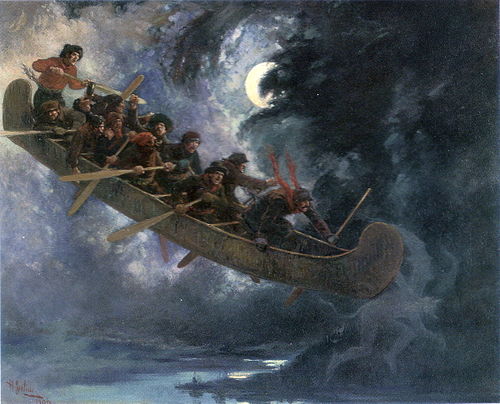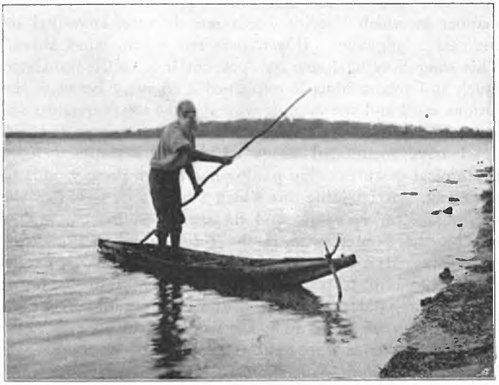Shipnoun
A water-borne vessel generally larger than a boat.
Shipnoun
A vessel which travels through any medium other than across land, such as an airship or spaceship.
Shipnoun
A sailing vessel with three or more square-rigged masts.
Shipnoun
A dish or utensil (originally fashioned like the hull of a ship) used to hold incense.
Shipnoun
(cartomancy) The third card of the Lenormand deck.
Shipnoun
(fandom) A fictional romantic relationship between two characters, either real or themselves fictional.
Shipverb
(transitive) To send by water-borne transport.
Shipverb
(transitive) To send (a parcel or container) to a recipient (by any means of transport).
Shipverb
(ambitransitive) To release a product to vendors; to launch.
Shipverb
(ambitransitive) To engage to serve on board a vessel.
Shipverb
(intransitive) To embark on a ship.
Shipverb
To put in its place.
Shipverb
(transitive) To take in (water) over the sides of a vessel.
Shipverb
(transitive) To pass (from one person to another).
Shipverb
To go all in.
Shipverb
(sports) To trade or send a player to another team.
Shipverb
(rugby) To bungle a kick and give the opposing team possession.
Shipverb
(fandom) To support or approve of a fictional romantic relationship between two characters, either real or themselves fictional, typically in fan fiction.
Shipnoun
Pay; reward.
Shipnoun
Any large seagoing vessel.
Shipnoun
Specifically, a vessel furnished with a bowsprit and three masts (a mainmast, a foremast, and a mizzenmast), each of which is composed of a lower mast, a topmast, and a topgallant mast, and square-rigged on all masts. See Illustation in Appendix.
Shipnoun
A dish or utensil (originally fashioned like the hull of a ship) used to hold incense.
Shipverb
To put on board of a ship, or vessel of any kind, for transportation; to send by water.
Shipverb
By extension, in commercial usage, to commit to any conveyance for transportation to a distance; as, to ship freight by railroad.
Shipverb
Hence, to send away; to get rid of.
Shipverb
To engage or secure for service on board of a ship; as, to ship seamen.
Shipverb
To receive on board ship; as, to ship a sea.
Shipverb
To put in its place; as, to ship the tiller or rudder.
Shipverb
To engage to serve on board of a vessel; as, to ship on a man-of-war.
Shipverb
To embark on a ship.
Shipnoun
a vessel that carries passengers or freight
Shipverb
transport commercially
Shipverb
hire for work on a ship
Shipverb
go on board
Shipverb
travel by ship
Shipverb
place on board a ship;
Ship
A ship is a large watercraft that travels the world's oceans and other sufficiently deep waterways, carrying goods or passengers, or in support of specialized missions, such as defense, research, and fishing. Ships are generally distinguished from boats, based on size, shape, load capacity, and tradition.
Canoenoun
A small long and narrow boat, propelled by one or more people (depending on the size of canoe), using single-bladed paddles. The paddlers face in the direction of travel, in either a seated position, or kneeling on the bottom of the boat. Canoes are open on top, and pointed at both ends.
Canoenoun
(slang) An oversize, usually older, luxury car.
Canoeverb
To ride or paddle a canoe.
Canoenoun
A boat used by rude nations, formed of trunk of a tree, excavated, by cutting of burning, into a suitable shape. It is propelled by a paddle or paddles, or sometimes by sail, and has no rudder.
Canoenoun
A boat made of bark or skins, used by savages.
Canoenoun
A light pleasure boat, especially designed for use by one who goes alone upon long excursions, including portage. It it propelled by a paddle, or by a small sail attached to a temporary mast.
Canoeverb
To manage a canoe, or voyage in a canoe.
Canoenoun
small and light boat; pointed at both ends; propelled with a paddle
Canoeverb
travel by canoe;
Canoe
A canoe is a lightweight narrow water vessel, typically pointed at both ends and open on top, propelled by one or more seated or kneeling paddlers facing the direction of travel and using a single-bladed paddle.In British English, the term can also refer to a kayak, while canoes are then called Canadian or open canoes to distinguish them from kayaks. Canoes were developed by cultures all over the world, including some designed for use with sails or outriggers.


